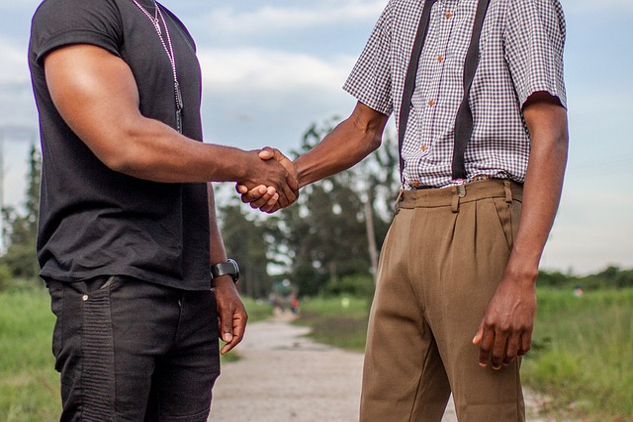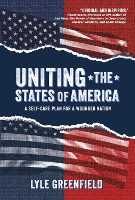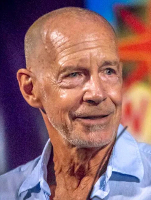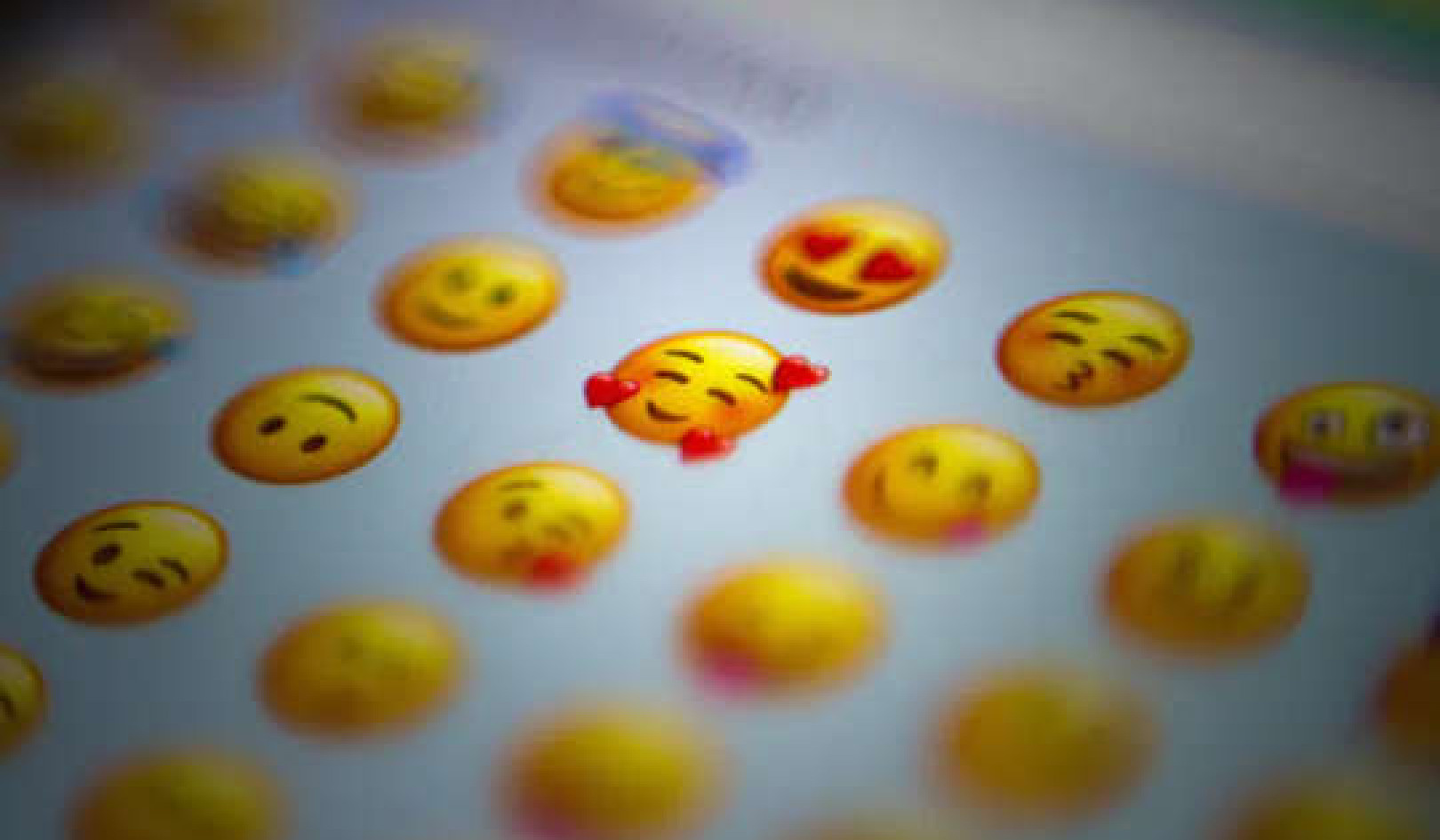
Image by Robert Simukonda
In this Article:
- Why has political discourse become so divisive?
- Can we learn to disagree without disrespecting others?
- How do social media and media choices contribute to our separation?
- What role should elected leaders play in fostering respectful dialogue?
- How can we as citizens take responsibility for more civil conversations?
In Today's World, Learn How to Disagree Better
by Lyle Greenfield.
We hear and read a great deal about the political and cultural divisiveness in our country today. Between the hostile rhetoric of politicians and commentators and the angry, sometimes cruel posts on social media, it almost seems as though we’re no longer one country—more like a collection of opposing factions screaming for attention, fishing for more “thumbs-up” numbers on Facebook or X.
Of course, there are very real issues over which many Americans have their differences: the economy and effects of inflation on our daily lives, support for wars in foreign lands, immigration policy, the government’s role in women’s choices. And that’s just a starter list.
Verbal Weapons of Destruction
What’s happened, however, is that these are no longer matters being addressed through debate, negotiation and compromise. They’re issues being weaponized on each “side” to condemn and demonize those with opposing views. Instead of having productive conversations about finding solutions, we’re turning our frustrations into anger and our neighbors and fellow citizens into enemies. It’s not easy holding on to to that idea of “one nation” in times like these!
How did we get to this point? How did the terms “red state” and “blue state” become more commonplace than “United States?” There are many reasons, of course, some more complicated than others.
High on the list are the politicians whose rhetoric is the most extreme, whether on the right or left. The sound bites, the phrases, attacks, and name-calling are what the media—both news and social—grab first. And though it might be hard to admit, they do get our attention, distracting us from thinking more deeply about a particular issue or person.
Media Madness
A huge factor affecting the war-of-words filling our brains today is the proliferation of media—news, entertainment, social—that we can choose from today. Plus, there are the “groups” we can align with inside those media choices.
According to the U.S. Census Bureau, approximately 183 million Americans were born after 1980, the year the very first cable news channel debuted. Add another 10 million toddlers (give or take), and you discover that well over half the U.S. population has never known a time where there were only three TV networks: ABC, CBS and NBC. Thus, as nation most of us have come of age having multiple choices for getting our “news” and opinion.
In the U.S. alone there are nearly 240 million Facebook users, which accounts for over two-thirds of our population! (The worldwide figure is approximately 3 billion.) And within Facebook are literally thousands of groups a person can join, from political groups to sourdough starter groups.
The point here is that whether it’s left or right-leaning cable news, or news and opinion on the internet, we have the ability to pick with a click, from thousands of sources, where we get our information and opinion from. And what most of us have chosen to do is find and stay with the sources we’re most in agreement with. In other words, we’re not hearing and seeing what the “other side” is hearing and seeing. So they must be wrong!
Assuming Personal Responsibility
In so many ways, this places the responsibility for more reasonable dialogue and empathy with the ones with whom we disagree squarely on our shoulders.
For our part, it might be a good idea to reflect on the words we’ve recited many times since we were children: The Pledge of Allegiance…. “ to the Flag of the United States of America …” That pledge to our flag represents our pledge to the founding principles of our nation, contained in our Constitution, where the rights to “life, liberty and the pursuit of happiness” are guaranteed to every one of us. Even those we don’t agree with. Or whose religions we don’t believe in.
If we use that as a starting point, what should come next is an attempt to understand why those “others”—our fellow citizens—believe what they do, and feel the way they feel about the issues and cultural challenges facing our nation. It is incumbent upon us to explore different news sources and listen to different voices. It doesn’t mean we have to change our minds about those differences. It just means we have to understand that although not everyone agrees with our beliefs, this land is their land, too.
But What About Our Leaders?
Likewise, it’s of utmost importance that our elected leaders dial down the name-calling and personal attacks. They’re just not helpful in conducting the nation’s business.
There was encouraging news from the National Governors Association (NGA) in the summer of 2023 of an initiative created by Utah’s Governor Spencer Cox. Focused on the importance of more civil discourse in our policy debates and working together to find solutions rather than simply pointing fingers and criticizing the “opposition,” the initiative is called Disagree Better: Healthy Conflict for Better Policy [NG1].
As stated on the Governor’s website: “The initiative is designed to help Americans bridge the partisan divide and adopt a more positive approach to political and social discourse. Through public debates, service projects, public service announcements, and a variety of other tools, governors are joining forces for the Disagree Better initiative.”
Can We Do Better?
Are our governors and other elected representatives able, and willing, to come to the table with more mutual respect and a desire to find common ground … to “disagree better?” Can we, as citizens, open our minds in order to bridge the “continental divide” our country is experiencing today? If our democracy as guaranteed by the Constitution is to endure, we must expect that of them, and of ourselves.
Copyright 2024. All Rights Reserved.
Book by this Author:
BOOK: Uniting the States of America
Uniting the States of America: A Self-Care Plan for a Wounded Nation
by Lyle Greenfield. Lyle Greenfield's "Uniting the States of America―A Self-Care Plan for a Wounded Nation" is a work of nonfiction and opinion. Incorporating the lessons of history and the ideas and wisdom of many, it is intended as both an educational resource and a call-to-action for citizens concerned about the politically and culturally divided state of our Union. A situation that has raised alarm for the very future of our democracy.
Lyle Greenfield's "Uniting the States of America―A Self-Care Plan for a Wounded Nation" is a work of nonfiction and opinion. Incorporating the lessons of history and the ideas and wisdom of many, it is intended as both an educational resource and a call-to-action for citizens concerned about the politically and culturally divided state of our Union. A situation that has raised alarm for the very future of our democracy.
Far from being "alarmist," however, the author proposes common sense solutions to our problems that require simply the decency and will of our elected leaders, and the active participation of our citizens. To that end, he shares the words and beliefs of Americans from across the country, and many walks of life on what must be done to reinvigorate the American ideal and bring us closer together.
For more info and/or to order this book, click here. Also available as a Kindle edition.
About the Author
 Lyle Greenfield is a man of many experiences. He’s worked in landscaping, construction, door-to-door sales, and a brewery before starting his career as a copywriter in NYC. He has served as president of the Long Island Wine Council, started a music production company in New York, is a founding member and former president of the Association of Music Producers (AMP). Lyle Greenfield is the author of several books including Uniting the States of America: A Self-Care Plan for a Wounded Nation, which was written with the goal of finding solutions for the current state of political divisiveness in our country. Learn more at lylejgreenfield.com.
Lyle Greenfield is a man of many experiences. He’s worked in landscaping, construction, door-to-door sales, and a brewery before starting his career as a copywriter in NYC. He has served as president of the Long Island Wine Council, started a music production company in New York, is a founding member and former president of the Association of Music Producers (AMP). Lyle Greenfield is the author of several books including Uniting the States of America: A Self-Care Plan for a Wounded Nation, which was written with the goal of finding solutions for the current state of political divisiveness in our country. Learn more at lylejgreenfield.com.
Article Recap:
The article discusses the growing political and cultural divide in the United States, emphasizing how disagreement has become hostile and unproductive. It explores the role of politicians, media, and citizens in escalating tensions, and offers insights into how we can bridge this divide by disagreeing without disrespect. The "Disagree Better" initiative serves as an example of how leaders can model respectful discourse. The article suggests that through empathy and mutual understanding, it is possible to foster more productive and civil conversations.


























